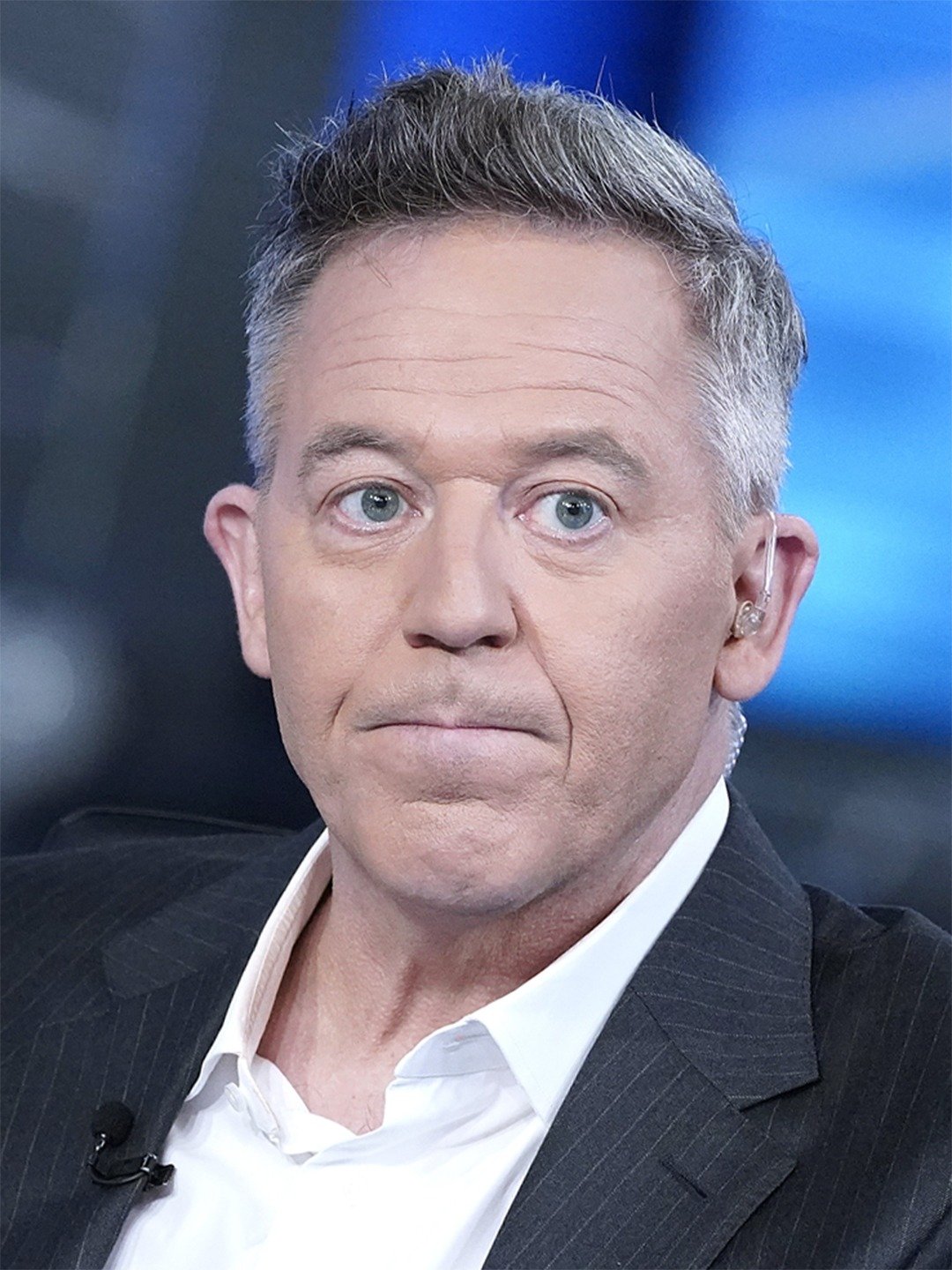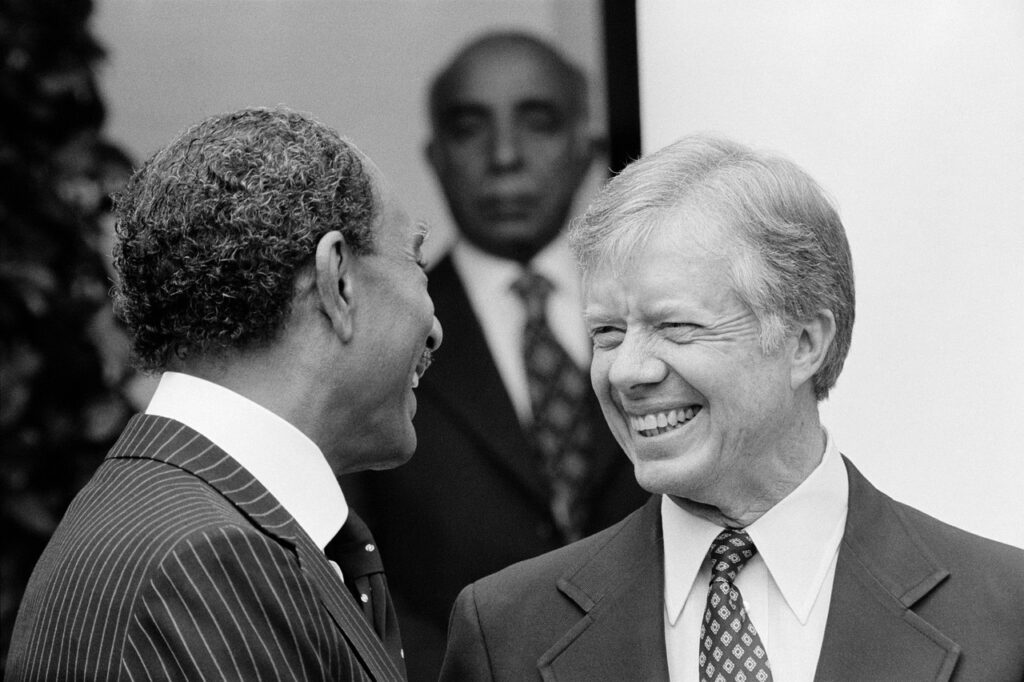
In the vibrant, often tumultuous landscape of American cable news, few voices resonate with the distinct, provocative clarity of Greg Gutfeld. From his early days in print media to his current perch as a dominant force in late-night television, Gutfeld has carved out a unique niche, becoming a figure central to conservative discourse and a lightning rod for controversy. His approach, a blend of sharp commentary, humor, and an unwavering point of view, has not only captivated millions but also frequently ignited fierce debates, challenging prevailing narratives with a directness that is unmistakably his own.
At a time when political divisions run deep and the stakes feel higher than ever, Gutfeld’s platform on Fox News provides a crucial lens through which a significant segment of the American populace views current events. His influence, evident in the commanding viewership of his shows, underscores a hunger for voices that speak without reservation, even when those voices venture into territory deemed too sensitive or too inflammatory by others. This article delves into the journey, the triumphs, and the many flashpoints that define Greg Gutfeld’s career, setting the stage for understanding his explosive reactions to the most contentious issues of our day, particularly his recent, impassioned response to the assassination of conservative activist Charlie Kirk and the ensuing debate over political violence.
Our journey through Gutfeld’s impactful career will illuminate the evolution of his style, the controversies that have tested his resolve, and the consistent, often challenging, perspective he brings to the national conversation. We will trace his rise from a magazine editor to a media titan, explore the foundational philosophies that guide his commentary, and examine some of the significant moments where his outspokenness has drawn both fervent support and severe condemnation. Understanding these facets is essential to grasping the full weight and context of his recent, unfiltered blast at a co-host, a moment that perfectly encapsulates the high-stakes nature of political dialogue in modern America.

1. **The Ascent of Greg Gutfeld: From Editor to Fox News Powerhouse**Greg Gutfeld’s path to becoming one of Fox News’ most recognizable and influential personalities is a story marked by unconventional turns and a clear intellectual evolution. Born in San Mateo, California, in 1964, Gutfeld’s early life included a Roman Catholic upbringing and an education at Junípero Serra High School. His academic journey culminated in a BA degree in English from the University of California, Berkeley, in 1987, a period he credits with fundamentally shaping his political outlook.
It was during his college years that Gutfeld experienced a pivotal shift, stating in a 2009 interview, “I became a conservative by being around liberals, and I became a libertarian by being around conservatives. You realize that there’s something distinctly in common between the two groups, the left and the right; the worst part of each of them is the moralizing.” This early realization about the perils of moralizing would become a cornerstone of his later commentary, informing his often-skeptical and contrarian approach to mainstream political narratives.
His post-college career began with an internship at The American Spectator, assisting conservative writer R. Emmett Tyrrell, before moving into the world of magazine publishing. Gutfeld honed his editorial skills at Prevention magazine and various Rodale Press magazines, eventually becoming a staff writer at Men’s Health in 1995 and its editor-in-chief in 1999. His foray into more provocative territory began when he took the helm as editor-in-chief of *Stuff* magazine, where he significantly boosted circulation from 750,000 to 1.2 million, even as his tenure was marked by a memorable stunt involving hired dwarfs at a Magazine Publishers of America conference, which ultimately led to his firing.
Undeterred, Gutfeld continued his editorial work, becoming the “director of brand development” at Dennis Publishing and editing Maxim magazine in the U.K. from 2004 to 2006, despite reported losses in readership. This diverse background in print media, characterized by both editorial success and a penchant for generating “buzz” through unconventional means, laid the groundwork for his eventual transition to television, where his unique voice would find an even broader platform.

2. **Gutfeld!’s Unprecedented Late-Night Dominance**Greg Gutfeld’s ascent in television has been nothing short of meteoric, culminating in his late-night show, Gutfeld!, achieving an unprecedented level of success that has challenged and, in some instances, surpassed long-established rivals. His journey on Fox News began with *Red Eye*, a late-night talk show he hosted from 2007 to 2015, known for its irreverent humor and unconventional discussions. During this period, he also became a co-host and panelist on *The Five* in 2011, solidifying his presence on the network’s weekday lineup.
The launch of *The Greg Gutfeld Show* in May 2015 marked a significant turning point, initially airing on Saturday nights. The show’s unique blend of comedy, political commentary, and panel discussions quickly gained traction, demonstrating a clear demand for Gutfeld’s distinct style in the late-night slot. This success led to a pivotal announcement in February 2021: the show would move to weeknights at 11 PM, later premiering on April 5, 2021, under its new name, *Gutfeld!*.
The move to weeknights placed *Gutfeld!* in direct competition with traditional late-night giants, a challenge it met with remarkable success. By August 2021, *Gutfeld!* had overtaken *The Late Show with Stephen Colbert* in nightly ratings, becoming the highest-rated late-night talk show in the United States. It averaged 2.12 million nightly viewers, outperforming *The Late Show*, *The Tonight Show Starring Jimmy Fallon*, and *Jimmy Kimmel Live!*, a testament to its broad appeal and Gutfeld’s growing influence.
This viewership dominance was further reinforced by the end of 2021, when the combined viewership for *Gutfeld!* and *The Five* averaged over five million viewers, cementing Gutfeld’s status as a top-tier media personality. In June 2023, Fox News announced another strategic move, shifting *Gutfeld!* to the 10 PM ET slot beginning July 17, a decision that officially repositioned it outside the conventional “late night” designation, showcasing the network’s confidence in its ability to draw massive audiences at an earlier hour. His consistent high rankings on Mediaite’s most influential persons in American media, fluctuating between 10th and 23rd place due to controversial remarks, yet returning to 12th by 2024, further underscore his enduring impact and unique position in media.

3. **The Foundation of Gutfeld’s Philosophy: A Libertarian Path Forged by Observation**Greg Gutfeld’s political philosophy, which he describes as libertarian, is not merely an intellectual label but a deeply ingrained perspective forged through his experiences, particularly during his formative years in college. His insightful observation that he “became a conservative by being around liberals, and I became a libertarian by being around conservatives” speaks volumes about his critical approach to ideology itself. It suggests a rejection of rigid partisan dogma, an understanding that both sides can exhibit a propensity for “moralizing” that he finds problematic.
This core belief—that the “worst part of each of them is the moralizing”—is a recurring theme in his commentary and underpins much of his distinctive style. It positions him as an observer who is inherently skeptical of grand narratives and self-righteous pronouncements, regardless of their origin. His libertarian leanings imply a strong emphasis on individual liberty, limited government, and a distrust of collective coercion, which often manifests in his critiques of political correctness and what he perceives as authoritarian tendencies from either end of the political spectrum.
His self-identification as an agnostic atheist, while having grown up Catholic and serving as an altar boy, further illustrates a journey of independent thought and a willingness to question established beliefs. This personal evolution from traditional religious faith to a secular, libertarian worldview aligns perfectly with his professional persona, which consistently challenges conventional wisdom and established power structures. He’s not afraid to be the contrarian, to poke holes in accepted truths, and to advocate for a more skeptical, less emotionally driven approach to societal issues.
This philosophical foundation allows Gutfeld to maintain a stance that is often provocative but rarely predictable within the confines of conservative media. He champions a freedom of expression that extends even to controversial opinions, arguing that open debate, however uncomfortable, is essential. This commitment to intellectual independence and a keen eye for hypocrisy, irrespective of political affiliation, defines the very essence of his commentary and explains why his voice, though often controversial, remains compelling to millions who share his skepticism of dogmatic adherence.

4. **Defining “Insult Conservatism”: Gutfeld’s Provocative Rhetoric**Greg Gutfeld’s rhetorical style has been keenly observed and, at times, sharply criticized, earning him a unique descriptor in the media landscape: “insult conservatism.” *The New York Times* characterized his approach as allowing him “to frame any serious argument as a joke and any joke as a serious argument, leaving viewers to suss out the distinction.” This description captures the essence of Gutfeld’s provocative method, where humor is not merely an embellishment but an integral tool for engaging with, and often undermining, political discourse.
His use of humor, sometimes bordering on irreverence or even sarcasm, serves multiple purposes. It can disarm opponents, make complex issues more accessible to a broad audience, and—crucially for his brand—provoke reactions. This style thrives on challenging the solemnity often associated with political debate, injecting a dose of playful aggression that resonates with viewers who appreciate a less formal, more combative exchange of ideas. For Gutfeld, the laugh can be as potent as the lecture in making a point.
However, this provocative style has not been without its detractors. *The Independent*, in 2025, opined that his content was increasingly “sycophantic” towards Trump and described his rhetoric as becoming “increasingly extreme and unhinged.” This criticism highlights the double-edged nature of “insult conservatism”—while it can be engaging and effective in mobilizing a base, it can also be perceived as losing its critical edge, sacrificing nuanced analysis for polemics, and contributing to a more polarized and less constructive public conversation. These contrasting assessments underscore the ongoing debate about the efficacy and ethics of Gutfeld’s distinctive rhetorical choices.
The fine line between edgy commentary and inflammatory rhetoric is one that Gutfeld frequently navigates, and often crosses, by design. His willingness to push boundaries ensures he remains a constant topic of discussion, whether praised for his fearlessness or condemned for his perceived recklessness. This deliberate embrace of controversy, inherent in “insult conservatism,” firmly positions him as a figure who, for better or worse, is consistently shaping the tone and direction of conservative media’s engagement with the broader political and cultural landscape.

5. **Navigating the Minefield of Controversy: The Canadian Military Incident**Greg Gutfeld’s tenure on *Red Eye* was characterized by its satirical and irreverent tone, a style that, while often entertaining, occasionally led to significant public backlash. One such incident occurred during a segment aired on March 17, 2009, where Gutfeld and his panel discussed Canadian Lieutenant General Andrew Leslie’s statement about the Canadian Armed Forces potentially requiring a one-year “synchronized break” after their mission in Afghanistan concluded in 2011.
Gutfeld’s commentary was scathing: “Meaning, the Canadian military wants to take a breather to do some yoga, paint landscapes, run on the beach in gorgeous white Capri pants.” Panelist Doug Benson added fuel to the fire, remarking, “I didn’t even know they were in the war… I thought that’s where you go if you don’t want to fight. Go chill in Canada.” Gutfeld then escalated the remarks, posing the question, “Isn’t this the perfect time to invade this ridiculous country? They have no army!”
The segment, posted to YouTube three days after the reported deaths of four Canadian soldiers in Afghanistan, sparked widespread outrage. Canada had been in command of the NATO mission in Kandahar Province, the birthplace and former capital of the Taliban, for three years, and along with Helmand Province, it was “home to some of the fiercest opposition to coalition forces” and reported to “have the highest casualty rates per province.” The timing and nature of the comments were deeply offensive to many, particularly given the sacrifices made by Canadian troops.
Canadian Defence Minister Peter MacKay publicly called on Fox to apologize, describing the remarks as “despicable, hurtful and ignorant.” In response, Gutfeld, while attempting to uphold the satirical nature of *Red Eye*, issued an apology: “The March 17 episode of Red Eye included a segment discussing Canada’s plan for a ‘synchronized break,’ which was in no way an attempt to make light of troop efforts. However, I realize that my words may have been misunderstood. It was not my intent to disrespect the brave men, women, and families of the Canadian military, and for that, I apologize.” This incident underscored the delicate balance between satire and insensitivity, especially when dealing with matters of war and national sacrifice.

6. **Challenging the Narrative: Gutfeld’s Stance on Ukraine War Coverage**In the wake of Russia’s invasion of Ukraine in 2022, Greg Gutfeld once again found himself at the center of a significant controversy, this time for his commentary on media coverage of the conflict. Gutfeld asserted that the media were intentionally “emotionally manipulating viewers with footage from the conflict because that makes a profit for news companies.” This statement, typical of his skeptical approach to mainstream narratives, suggested a cynical motive behind the urgent and often graphic reporting from the war zone.
However, his remarks drew an immediate and powerful rebuke from within his own network. Fox foreign affairs correspondent Benjamin Hall, who was on the ground in Kyiv reporting directly from the conflict, directly countered Gutfeld’s claim. Hall stated unequivocally, “(It) is not the media trying to drum up some emotional response. This is absolutely what’s happening.” Hall’s on-the-ground experience provided a stark contrast to Gutfeld’s distant analysis, highlighting the perilous reality faced by journalists covering the war.
The gravity of Hall’s statement became tragically clear just a few days later when he was seriously injured in a surprise attack by Russian forces. In the same attack, Pierre Zakrzewski, who also worked for Fox, and a Ukrainian journalist were killed. This devastating event lent a profound, somber weight to Hall’s earlier rebuttal, underscoring the very real dangers and human cost of reporting from a war zone, directly contradicting Gutfeld’s assertion of mere emotional manipulation for profit.
Gutfeld’s comments on the Ukraine coverage exemplify his tendency to question the motives of established institutions, even when those institutions are reporting on events of immense global significance. While Gutfeld often frames such critiques as a search for underlying truths, the direct and painful consequences for those on the front lines, as demonstrated by the attack on the Fox News crew, created a particularly stark and tragic juxtaposition between commentary and brutal reality. The incident became another touchstone in the ongoing discussion about the responsibility of media figures in shaping public perception of critical global events.
Gutfeld’s unique approach, often blending satire with sharp political commentary, has frequently placed him at the heart of public debate, especially when navigating the intricate moral landscapes of history and contemporary societal issues. While Section 1 illuminated his foundational style and earlier contentious moments, the recent past has presented Gutfeld with new arenas for his provocative rhetoric, pushing boundaries and drawing both fierce support and equally fervent condemnation. These recent flashpoints reveal a commentator unafraid to challenge prevailing orthodoxies, even at the risk of widespread backlash, solidifying his role as a central, albeit polarizing, voice in conservative media.
His commentary continues to provoke, to analyze, and to dissect the stories dominating headlines, always with an unwavering point of view that is unmistakably his. Whether it’s confronting the narratives around historical atrocities or engaging in passionate exchanges about political violence, Gutfeld’s interventions are designed to cut through what he perceives as hypocrisy, offering an alternative perspective that resonates with millions of viewers who share his distrust of mainstream consensus. The controversies that follow are not mere footnotes but integral chapters in the ongoing saga of a media personality who thrives on contention and whose influence continues to shape the national conversation.
7. **The Holocaust Comments: A Collision with Historical Sensitivity**In July 2023, Greg Gutfeld found himself embroiled in yet another significant controversy, stemming from a discussion on *The Five* about a new educational curriculum in Florida public schools. This curriculum proposed teaching students that enslaved people, “in some instances, could be applied for their personal benefit,” a statement that immediately ignited public outcry. During the ensuing panel discussion, Gutfeld’s co-host, Jessica Tarlov, a Jewish woman, drew a stark parallel to the Holocaust, questioning if a similar argument could be made for those who perished under Nazi persecution.
Gutfeld’s response, however, only intensified the debate. He invoked Viktor Frankl’s seminal work, *Man’s Search For Meaning*, seemingly implying that those who survived the Holocaust did so by being “skilled or useful.” This interpretation was widely perceived as a grotesque minimization of the systemic brutality of the Holocaust and a profound misrepresentation of Frankl’s message, which primarily focuses on finding meaning amid suffering, not on the ‘usefulness’ of victims as a survival strategy.
The reaction was swift and unequivocal. The Auschwitz Memorial, an institution globally revered for its historical integrity, publicly disagreed with Gutfeld’s statement on Twitter. They carefully articulated that while some Jews might have leveraged skills or usefulness, it was crucial to “contextualize this statement properly and understand that it does not represent the complex history of the genocide perpetrated by Nazi Germany.” This rare intervention from such a venerable historical body underscored the severity of Gutfeld’s remarks.
Further condemnation came from the highest levels of government, with Andrew Bates, the deputy White House press secretary, denouncing Gutfeld’s comments as “a horrid, dangerous, extreme lie that insults the memory of the millions of Americans who suffered from the evil of enslavement.” Even within Fox News, the comments reportedly caused significant distress. *The Daily Beast* cited unnamed Fox News employees who strongly disagreed, with one producer calling it “a disgusting thing to say” and another insider claiming Gutfeld’s “career would be over,” highlighting the internal disquiet his provocative commentary can sometimes generate.

8. **The Perilous Path of “Nazi” Analogies: Inflammatory Rhetoric**Beyond the Florida curriculum debate, Greg Gutfeld has repeatedly courted controversy through his deployment of highly charged historical analogies, particularly involving Nazism, which have consistently provoked outrage and accusations of normalizing one of history’s most horrific regimes. One such instance saw Gutfeld drawing a direct comparison between transgender healthcare providers and “Nazi doctors who experimented on Jews in the Holocaust,” a statement that immediately struck many as deeply offensive and historically irresponsible.
This particular comparison, made in the context of contemporary debates over gender-affirming care, weaponized the immense suffering of Holocaust victims to score political points, equating medical professionals with perpetrators of heinous crimes against humanity. Critics argued that such rhetoric trivializes the Holocaust’s unique horrors and fuels dangerous misinformation by creating false equivalences between modern medical practices and genocidal experiments. It is a rhetorical strategy designed to shock and to condemn, but one that often overreaches, generating more heat than light.
Gutfeld further escalated his provocative use of this term on July 15, 2025, when he controversially suggested that conservatives should “reclaim the word ‘Nazi’ for themselves.” This astonishing assertion came amidst discussions where he felt conservatives were being unfairly labeled. He posited, “This is why the criticism doesn’t matter to us when you call us Nazis. Nazi this and Nazi that… I’m beginning to think they don’t like us…”
He then drew a highly contentious parallel to the African American community’s historical efforts to strip the power from a racial slur by reclaiming it. Gutfeld stated, “I’ve said this before. We need to learn from the Blacks. The way they were able to remove the power from the n-word by using it… from now on, it’s, ‘What up, my Nazi? Hey, what up, my Nazi? Hey, what’s hanging, my Nazi?'” These comments elicited widespread criticism and direct allegations that Gutfeld was actively normalizing Nazism, a charge that underscores the extreme boundaries his “insult conservatism” is willing to test, often at great cost to respectful public discourse.

9. **Fox News, Misinformation, and the Jimmy Kimmel Incident: A Reckoning**The media landscape, particularly within Fox News’ orbit, has faced intense scrutiny regarding the dissemination of information and the network’s accountability for its content. This ongoing battle against misinformation claims came sharply into focus with Greg Gutfeld’s recent comments on Jimmy Kimmel. The news of ABC’s “indefinite” suspension of Kimmel’s show, following comments he made about the murder of conservative activist Charlie Kirk, became a moment of celebration for Gutfeld and his co-hosts on *Gutfeld!*.
During his show, Gutfeld tangled with *The Atlantic*’s David Frum, who criticized the suspension by invoking Gutfeld himself, questioning the hypocrisy of conservatives decrying “fascism” while their appointees threaten broadcast networks over comedic content. Gutfeld’s dismissive reply, “You’re conflating intentional misinformation with opinion. Which is as dishonest as conflating David Frum with physically appealing and relevant,” inadvertently opened the door for a powerful rebuttal concerning the very issue of misinformation.
CNN’s Aaron Blake delivered a “brutal $787 million receipt” directly to Gutfeld’s doorstep, meticulously listing instances where Fox News had faced severe financial penalties for airing false information. This included the staggering $787.5 million settlement with Dominion Voting Systems in 2023 for broadcasting voter fraud misinformation that many within the network knew to be false or baseless. Blake also recalled the settlement with the family of Seth Rich in 2020 over false conspiracy theories about his murder, and the network’s segments joking about the Paul Pelosi attack, including the outrageous suggestion of Nancy Pelosi finding her husband “playing hide the hammer with a Black Lives Matter guy.”
While Gutfeld himself was not a direct defendant in these lawsuits, his role as a prominent content producer for Fox News inextricably links him to the network’s broader battles against misinformation. This incident perfectly encapsulated the delicate, often hypocritical, tightrope walk many Fox personalities navigate, celebrating the silencing of a rival while their own network grapples with the fallout of past factual inaccuracies and deeply harmful conspiracy theories, reinforcing the critical need for media accountability in a highly polarized environment.

10. **Gutfeld’s Profound Tribute to Charlie Kirk: Grief Hardens into Resolve**The assassination of Turning Point USA founder and staunch Trump ally Charlie Kirk sent shockwaves through the conservative movement, prompting a deeply emotional and poignant response from Greg Gutfeld. Out of respect for Mr. Kirk and to ensure comprehensive coverage of the tragedy and the ensuing manhunt, *Gutfeld!* did not air on Wednesday, September 10, the night of the murder. This pause underscored the gravity of the event, which struck at the heart of the conservative youth movement.
Even before his show returned, Gutfeld chimed in on social media. Referencing an MSNBC personality who blamed Kirk’s rhetoric for his assassination, Gutfeld snapped, “The crowd that called us nazis say hateful words cause hateful actions. They were right.” This immediate, direct broadside signaled Gutfeld’s intent to frame Kirk’s death within the larger context of political blame and the consequences of incendiary rhetoric, albeit with a pointed counter-accusation.
When Kirk’s killer was finally apprehended on Friday, September 12, it allowed Gutfeld to fully address the tragedy on his show, delivering a powerful and deeply emotional tribute that resonated widely. He spoke with raw sentiment about Kirk’s life, noting that Charlie was a man of action, not just words. Gutfeld declared, “He died young, but he accomplished more in 30 years than most countries do in 300. People love to say, ‘I want to make a difference.’ Well, he didn’t just say it. He did it.”
Gutfeld further asserted Kirk’s moral standing, arguing, “He was doing God’s work. How do you know I know that? Because he was cut down by the devil, but his faith had him leave this mortal coil a joyous man.” His voice thick with emotion, Gutfeld vowed that Kirk’s legacy would not only endure but flourish. “He already knew his impact, which will only grow with his passing. It’s his family. We grieve for his children. And be honest, we kind of grieve for us.” He concluded by dramatically vowing that killing the man would not kill the idea: “If you want to kill an idea, the worst thing you could do is kill the man behind it, because that gives the idea not just legs, but also wings and also millions of louder and stronger voices, ours and yours.”

11. **The Ignited Debate: Gutfeld’s Clash with Jessica Tarlov Over Political Violence (Part 1)**The assassination of Charlie Kirk cast a long shadow over political discourse, prompting intense debate about the nature and origins of political violence in America. This volatile topic ignited a particularly fiery exchange on *The Five* on Monday, September 15, when Greg Gutfeld clashed dramatically with his co-host, political consultant Jessica Tarlov. The panel was discussing the fatal shooting of Kirk and the arrest of the alleged perpetrator, Tyler Robinson, setting the stage for a heated confrontation over accountability and narratives.
Gutfeld opened the debate with an assertive, declarative statement that immediately framed the issue in stark partisan terms. He posited, “We don’t need more information. What is interesting here is why this is only happening on the left and not the right? That’s all we need to know.” This bold assertion, typical of Gutfeld’s direct and often provocative style, sought to definitively attribute political violence to one side of the ideological spectrum, aiming to shut down any nuanced discussion of broader societal factors.
Jessica Tarlov, representing a more liberal viewpoint on the panel, quickly interjected, challenging Gutfeld’s premise with a direct counter-example. She asked, “What about Melissa Hortman?” referencing the Minnesota State Representative who was tragically shot and killed alongside her husband in June. Tarlov’s question aimed to broaden the conversation, suggesting that political violence is not a monolithic phenomenon exclusive to one side, but rather a complex issue with various manifestations across the political landscape.
Gutfeld’s response to Tarlov’s question was dismissive and, for many, deeply insensitive. He retorted, “Did you know her name before it happened? None of us did. None of us were spending every single day talking about Melissa Hortman. I never heard of her until after she died.” This comment, which seemed to imply that the significance of a victim’s death correlated with their public profile, instantly drew criticism for appearing to devalue the life and tragedy of Representative Hortman simply because she was not a household name within Gutfeld’s preferred media ecosystem.
12. **The Ignited Debate: Gutfeld’s Clash with Jessica Tarlov Over Political Violence (Part 2)**Jessica Tarlov, visibly taken aback by Greg Gutfeld’s dismissive remarks about Melissa Hortman, directly challenged his implication, retorting, “So she doesn’t matter?” This question immediately escalated the tension, leading to Gutfeld’s fiery and expletive-laced response. “Don’t play that bull**** with me,” he shot back, his anger clearly mounting. He proceeded to articulate his reasoning, arguing, “What I’m saying is there was no demonization amplification about that woman before she died. It was a specific crime against her by somebody that knew her.”
Gutfeld’s assertion was a forceful rejection of what he termed the “both sides argument,” a common refrain from centrists or liberals attempting to attribute blame equally across the political spectrum. He declared, “The fact of the matter is the both sides argument not only doesn’t fly, we don’t care. We don’t care about your both sides argument. That s*** is dead.” This statement underscored his conviction that, in his view, the threat of political violence was overwhelmingly emanating from the left, and that attempts to broaden the blame were simply a deflection from that perceived reality.
He continued his impassioned argument, suggesting that those on the left were desperately trying to “rationalize” Kirk’s death with “what about this” and “what about that” because, in his words, “your beliefs do not match reality.” Gutfeld then delivered a powerful, emotional conclusion to his side of the argument, stating, “We are NOT doing that because we saw it happen. We saw a young bright man ASSASSlNATED and we know who did it.” This impassioned declaration aimed to solidify the narrative of a targeted political assassination, leaving no room for alternative interpretations or shared responsibility.
However, Gutfeld’s assertive claims about the singular source of political violence stand in contrast to data from independent research. While Utah’s Republican governor Spencer Cox suggested that alleged shooter Tyler Robinson had been “deeply indoctrinated with leftist ideology,” Robinson himself has not publicly stated his political beliefs or motives. Crucially, research by the National Institute of Justice in January 2024 indicated that “the number of far-right attacks continues to outpace all other types of terrorism and domestic violent extremism” in the United States. Furthermore, data from the Anti-Defamation League’s Center on Extremism reveals that “right-wing extremism accounted for around 85% of extremist-related fatalities in the United States since 2016.” These statistics offer a sobering counter-narrative, highlighting a complex reality that Gutfeld’s rhetoric often simplifies. Viewers on social media were quick to react to Gutfeld’s comments, with many expressing offense at his apparent dismissal of Hortman’s killing and others praising Tarlov’s stand against what they perceived as Gutfeld’s one-sided and inflammatory pronouncements.
In the ever-churning maelstrom of cable news, Greg Gutfeld stands as a testament to the power of a distinct voice, no matter how controversial. From irreverent magazine editor to a late-night ratings king, his journey is marked by an unwavering commitment to his libertarian ideals and a rhetorical style that deliberately provokes, challenges, and engages. While his passionate responses to events like Charlie Kirk’s assassination and his heated debates with co-hosts can electrify audiences, they also ignite crucial, albeit often uncomfortable, conversations about the state of political discourse. Gutfeld’s influence, and the debates he fuels, will undoubtedly continue to shape how a significant portion of America perceives its news, its politics, and the very boundaries of acceptable commentary in a rapidly evolving media landscape.





